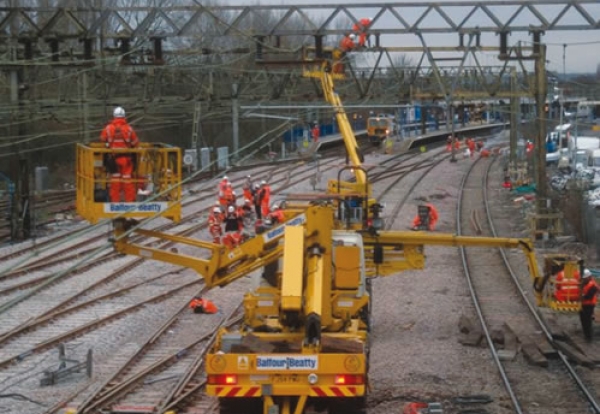They warn that the Government’s stop-start approach in the face of early cost overruns has hit the programme with just 215km of track last year electrified.
To decarbonise the network, 13,000 single track kilometres – or around 450km a year – of track will need to be electrified by 2050.
In an open letter to the Transport Secretary Grant Shapps, more than 15 rail businesses, and industry groups, are now calling for a programme of rail electrification to begin as soon as possible.
The industry claims that a sustained planned programme would allow the supply-side to cut the cost of some projects by as much as half.
The letter comes on the back of a new report, “Why Rail Electrification?” which sets out why – even with the development of clean new technologies like battery and hydrogen trains – the industry will be unable to decarbonise the rail network to the extent required without significant further electrification.
Civing Engineering Contractors Association chief executive Alasdair Reisner said: “Electrifying rail provides clear benefits to passengers and freight transport as outlined in ‘Why Rail Electrification?’.
“Now, as the UK looks to meet its net-zero targets, there is added urgency to decarbonise the rail network through a rolling programme of electrification. Moving on from a stop-start approach, industry is ready to deliver investment in a way that better retains skills and provides the best value for money.”
Darren Caplan, Chief Executive of the Railway Industry Association, said: “Electrification in the UK can be delivered affordably, at up to 50% the cost of some past projects, if there is a long-term, consistent, profile of work rather than the current situation of boom and bust.
“Crucially, a rolling programme of electrification needs to start now if the Government is to hit its Net Zero obligations, and if the railway industry is not to lose capability and expertise from the current hiatus in activity.
“Also, by committing to electrification immediately, UK rail could be a world leader, creating and sustaining green jobs, investment and economic growth at a critical time for the UK economy as we all seek to build out of the Coronavirus pandemic.”









































 (300 x 250 px).jpg)












.gif)

